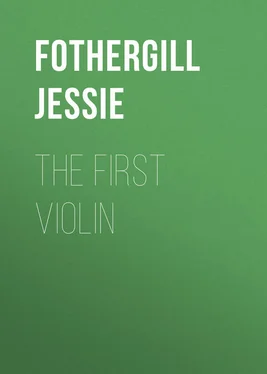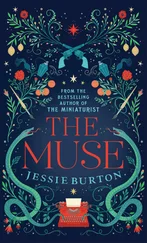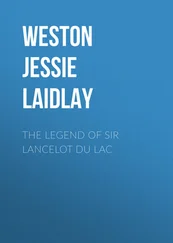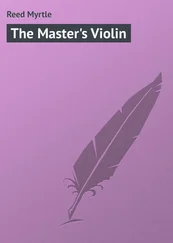Jessie Fothergill - The First Violin
Здесь есть возможность читать онлайн «Jessie Fothergill - The First Violin» — ознакомительный отрывок электронной книги совершенно бесплатно, а после прочтения отрывка купить полную версию. В некоторых случаях можно слушать аудио, скачать через торрент в формате fb2 и присутствует краткое содержание. Жанр: foreign_antique, foreign_prose, foreign_sf, на английском языке. Описание произведения, (предисловие) а так же отзывы посетителей доступны на портале библиотеки ЛибКат.
- Название:The First Violin
- Автор:
- Жанр:
- Год:неизвестен
- ISBN:нет данных
- Рейтинг книги:4 / 5. Голосов: 1
-
Избранное:Добавить в избранное
- Отзывы:
-
Ваша оценка:
- 80
- 1
- 2
- 3
- 4
- 5
The First Violin: краткое содержание, описание и аннотация
Предлагаем к чтению аннотацию, описание, краткое содержание или предисловие (зависит от того, что написал сам автор книги «The First Violin»). Если вы не нашли необходимую информацию о книге — напишите в комментариях, мы постараемся отыскать её.
The First Violin — читать онлайн ознакомительный отрывок
Ниже представлен текст книги, разбитый по страницам. Система сохранения места последней прочитанной страницы, позволяет с удобством читать онлайн бесплатно книгу «The First Violin», без необходимости каждый раз заново искать на чём Вы остановились. Поставьте закладку, и сможете в любой момент перейти на страницу, на которой закончили чтение.
Интервал:
Закладка:
Struggling to repress my tears, I said no more, but passed out, cut to the heart. The door was closed gently behind me. I felt as if it had closed upon a bright belief of my youth. I leaned for a moment against the passage wall and pressed my hand against my eyes. From within came the sound of a child’s voice, “ Mein vater ,” and the soft, deep murmur of Eugen’s answer; then I went down-stairs and into the open street.
That hated, hateful three thalers ten groschen were still clasped in my hand. What was I to do with it? Throw it into the Rhine, and wash it away forever? Give it to some one in need? Fling it into the gutter? Send it him by post? I dismissed that idea for what it was worth. No; I would obey his prohibition. I would keep it – those very coins, and when I felt inclined to be proud and conceited about anything on my own account, or disposed to put down superhuman charms to the account of others, I would go and look at them, and they would preach me eloquent sermons.
As I went into the house, up the stairs to my room, the front door opened again and Anna Sartorius overtook me.
“I thought you had left the probe?” said I, staring at her.
“So I had, Herzchen ,” said she, with her usual ambiguous, mocking laugh; “but I was not compelled to come home, like a good little girl, the moment I came out of the Tonhalle. I have been visiting a friend. But where have you been, for the probe must have been over for some time? We heard the people go past; indeed, some of them were staying in the house where I was. Did you take a walk in the moonlight?”
“Good-night,” said I, too weary and too indifferent even to answer her.
“It must have been a tiring walk; you seem weary, quite ermüdet ,” said she, mockingly, and I made no answer.
“A haupt-probe is a dismal thing after all,” she called out to me from the top of the stairs.
From my inmost heart I agreed with her.
CHAPTER XIII
“ Phillis. I want none o’ thy friendship!
Lesbia. Then take my enmity!”
“When a number of ladies meet together to discuss matters of importance, we call it ‘Kaffeeklatsch,’” Courvoisier had said to me on that never-forgotten afternoon of my adventure at Köln.
It was my first kaffeeklatsch which, in a measure, decided my destiny. Hitherto, that is, up to the end of June, I had not been at any entertainment of this kind. At last there came an invitation to Frau Steinmann and to Anna Sartorius, to assist at a “coffee” of unusual magnitude, and Frau Steinmann suggested that I should go with them and see what it was like. Nothing loath, I consented.
“Bring some work,” said Anna Sartorius to me, “or you will find it langweilig – slow, I mean.”
“Shall we not have some music?”
“Music, yes, the sweetest of all – that of our own tongues. You shall hear every one’s candid opinion of every one else – present company always excepted, and you will see what the state of Elberthal society really is – present company still excepted. By a very strange chance the ladies who meet at a klatsch are always good, pious, virtuous, and, above all, charitable. It is wonderful how well we manage to keep the black sheep out, and have nothing but lambs immaculate.”
“Oh, don’t!”
“Oh, bah! I know the Elberthal Klatscherei . It has picked me to pieces many a time. After you have partaken to-day of its coffee and its cakes, it will pick you to pieces.”
“But,” said I, arranging the ruffles of my very best frock, which I had been told it was de rigueur to wear, “I thought women never gossiped so much among men.”
Fräulein Sartorius laughed loud and long.
“The men! Du meine Güte! Men at a kaffeeklatsch! Show me the one that a man dare even look into, and I’ll crown you – and him too – with laurel, and bay, and the wild parsley. A man at a kaffee — mag Gott es bewahren! ”
“Oh!” said I, half disappointed, and with a very poor, mean sense of dissatisfaction at having put on my pretty new dress for the first time only for the edification of a number of virulent gossips.
“Men!” she reiterated with a harsh laugh as we walked toward the Goldsternstrasse, our destination. “Men – no. We despise their company, you see. We only talk about them directly or indirectly from the moment of meeting to that of parting.”
“I’m sorry there are no gentlemen,” said I, and I was. I felt I looked well.
Arrived at the scene of the kaffee, we were conducted to a bedroom where we laid aside our hats and mantles. I was standing before the glass, drawing a comb through my upturned hair, and contemplating with irrepressible satisfaction the delicate lavender hue of my dress, when I suddenly saw reflected behind me the dark, harshly cut face of Anna Sartorius. She started slightly; then said, with a laugh which had in it something a little forced:
“We are a contrast, aren’t we? Beauty and the Beast, one might almost say. Na! ’ s schad ’ t nix. ”
I turned away in a little offended pride. Her familiarity annoyed me. What if she were a thousand times cleverer, wittier, better read than I? I did not like her. A shade crossed her face.
“Is it that you are thoroughly unamiable?” said she, in a voice which had reproach in it, “or are all English girls so touchy that they receive a compliment upon their good looks as if it were an offense?”
“I wish you would not talk of my ‘good looks’ as if I were a dog or a horse!” said I, angrily. “I hate to be flattered. I am no beauty, and do not wish to be treated as if I were.”
“Do you always hate it?” said she from the window, whither she had turned. “ Ach! there goes Herr Courvoisier!”
The name startled me like a sudden report. I made an eager step forward before I had time to recollect myself – then stopped.
“He is not out of sight yet,” said she, with a curious look, “if you wish to see him.”
I sat down and made no answer. What prompted her to talk in such a manner? Was it a mere coincidence?
“He is a handsome fellow, nicht wahr ?” she said, still watching me, while I thought Frau Steinmann never would manage to arrange her cap in the style that pleased her. “But a Taugenichts all the same,” pursued Anna as I did not speak. “Don’t you think so?” she added.
“A Taugenichts – I don’t know what that is.”
“What you call a good-for-nothing.”
“Oh.”
“ Nicht wahr? ” she persisted.
“I know nothing about it.”
“I do. I will tell you all about him some time.”
“I don’t wish to know anything about him.”
“So!” said she, with a laugh.
Without further word or look I followed Frau Steinmann down-stairs.
The lady of the house was seated in the midst of a large concourse of old and young ladies, holding her own with a well-seasoned hardihood in the midst of the awful Babel of tongues. What a noise! It smote upon and stunned my confounded ear. Our hostess advanced and led me with a wave of the hand into the center of the room, when she introduced me to about a dozen ladies: and every one in the room stopped talking and working, and stared at me intently and unwinkingly until my name had been pronounced, after which some continued still to stare at me, and commenting openly upon it. Meanwhile I was conducted to a sofa at the end of the room, and requested in a set phrase, “ Bitte, Fräulein, nehmen sie platz auf dem sofa ,” with which long custom has since made me familiar, to take my seat upon it. I humbly tried to decline the honor, but Anna Sartorius, behind me, whispered:
Читать дальшеИнтервал:
Закладка:
Похожие книги на «The First Violin»
Представляем Вашему вниманию похожие книги на «The First Violin» списком для выбора. Мы отобрали схожую по названию и смыслу литературу в надежде предоставить читателям больше вариантов отыскать новые, интересные, ещё непрочитанные произведения.
Обсуждение, отзывы о книге «The First Violin» и просто собственные мнения читателей. Оставьте ваши комментарии, напишите, что Вы думаете о произведении, его смысле или главных героях. Укажите что конкретно понравилось, а что нет, и почему Вы так считаете.












